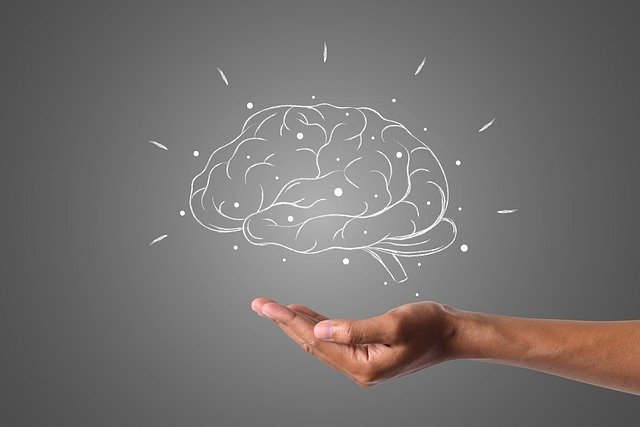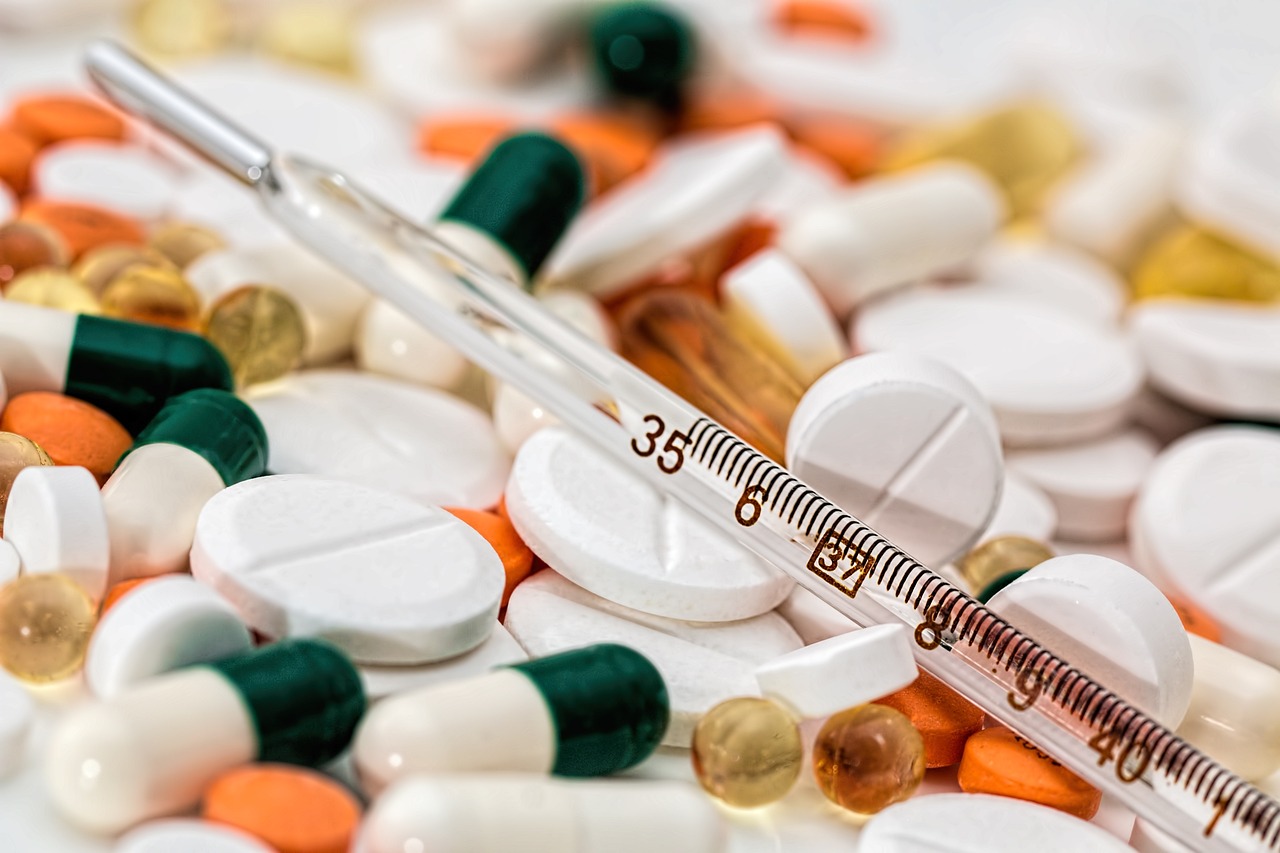Humans tend to have habits. Everyone has their own habits they seem to find it difficult to stop. Some bad habits need some adjusting to get rid of, and in some cases, you’ll get some withdrawal symptoms, and you’ll struggle to stop that habit.
You might be a habitual procrastinator, and you’ll find yourself feeling uneasy when you do everything on time, and you’ll struggle.
Addiction, however, is a different animal altogether. It’s a bad habit, without having any control over your behaviour yourself.
In many cases, when trying to beat an alcohol or drug addiction a person might struggle with withdrawal symptoms, depending on the level of addiction they are suffering from.
AWS (Alcohol Withdrawal Syndrome) and PAWS (Past-Acute-Withdrawal-Syndrome) occur when a heavy drinker suddenly stops drinking.
These symptoms will impact someone both physically and mentally.
Depending on the level of addiction, you might suffer from psychological conditions like anxiety or physical conditions like Delirium Tremens, which are extremely serious and can be potentially life-threatening.

Alcoholism is considered to be a physical and mental health issue by medical professional standards.
An addiction to alcohol occurs when an individual becomes physically dependent on alcohol.
When the individual ceases to drink alcohol for several hours, physical and psychological addiction withdrawal symptoms will begin to appear.
Alcoholism is often determined by a questionnaire, as the only person who can really measure up the alcohol intake, is the drinker himself. The most known questionnaire would be the CAGE questionnaire. A good test for you to determine whether you might have a problem with alcohol dependency.
The questionnaire asks the following questions:
If you have answered yes to two of these, you might be suffering from alcoholism yourself.
Heavy drinkers of alcohol, will, after months or years of continuous alcohol intake become physically dependent on alcohol indicating they have become addicted to alcohol and will probably be diagnosed with Alcohol Use Disorder (AUD).
Alcohol withdrawal syndrome is a negative physiological state(s) that occurs when a person gives up drinking alcohol after a period of sustained heavy use.
Because alcohol is a psychoactive substance the brain and body have to adjust to its presence if it is consumed regularly in a process known as neuroadaptation.
The psychoactive effect alters brain chemistry, and our internal biology has to make adjustments for it to continue to function optimally and for us to be unaffected by the drug. (3,11)

Many alcohol dependents will come across a variety of mental health issues and negative emotional effects during their withdrawal stage.
Looking for help with depression, anxiety and irritability are some of the most popular search terms related to dealing with the psychological aspects of alcohol withdrawal.
However, these are underlying issues most of the time, often being a major factor that drives one to drink in the first place.
A lot of people who have been suffering from anxiety and depression self-medicate with alcohol, which could cause a vicious cycle to happen.
Drinking alcohol might help someone with depression or anxiety in the short term, but binge drinking will limit your brain’s ability to produce chemicals called neurotransmitters.
It will lower the serotonin levels in your brain after a few hours, which regulates the feeling of happiness.
You would feel even worse the next day, and it would push you to drink more, which in turn would exacerbate your mental health issues.
After a period of prolonged drinking, your serotonin levels would be at a very low point, which then could develop into a full depression.
Restlessness and insomnia are some other well-known addiction withdrawal symptoms. There are many reasons why one could suffer from insomnia during withdrawal.
It might be a direct result of the depression caused by the lack of serotonin in your brain. Many people with depression will struggle with sleeping.
Not only will alcohol lower your serotonin levels, but also that of another chemical in your brain, dopamine.
Dopamine is linked with your motivation levels and reinforcing pleasure. If you struggle to fall asleep, it’s most likely because you have a low level of these, which will, in turn, make you less tired, and you’ll be up all night before you know it.
Due to these severe impacts, proper mental health services are a key part of effectively treating alcohol addiction.

The ‘shakes’ is one of the most documented and well-known alcohol withdrawal symptoms, a lot of alcohol addicts come across. After a period of heavy and prolonged drinking, one might start experiencing body tremors.
Alcoholism and alcohol abuse cause tremors in diverse ways. In many cases, shaking from alcohol withdrawal is a physiologic tremor, which disappears after you complete the alcohol detox process.
Extreme emotions can increase physiologic tremors, so if you are anxious about addiction withdrawal and alcohol detox, the trembling might be stronger.
Shaking will also occur because alcohol abuse has damaged your nerve cells. Alcohol is considered a depressant, by reducing activities in your brain.
Your brain becomes gradually more used to that consistent low level of stimulation as one maintains a heavy or frequent drinking habit.
Once you stop drinking, your brain gets stimulated with more activity than it is ready for. Your nervous system feels overwhelmed, and hyperactivity symptoms like shaking and tremors as a result.
Other alcohol withdrawal symptoms include:
Other withdrawal symptoms are night sweats for instance. This is because the alcohol is being broken down through sweating in your body.
Only 10 per cent of the alcohol in your body goes out through your urine. The rest will be broken down through metabolism working throughout your body.
Therefore, after stopping drinking, your body will try and push and sweat all the alcohol out of the body.

Medical science suggests that drinkers can develop withdrawal symptoms if they consume at least 6 drinks a day over just one week, with the amount and frequency determining how severe the symptoms are for the individual.
As a rule, withdrawal symptoms begin to occur between 6 and 24 hours after a person last consumed alcohol.
Many withdrawal symptoms will last for 3 – 7 days, although plenty of drinkers have reported symptoms such as insomnia, anxiety and low mood for several weeks after their last drink although these are likely to be psychological effects of withdrawal rather than physical withdrawal symptoms
There are individual differences in the withdrawal symptoms experienced, with some drinkers reporting more dangerous withdrawal symptoms than others (2,5) and the possibility of different symptoms interacting, which in the worst cases may require partial hospitalisation.

Regular consumers of alcohol tend to have built up a tolerance to alcohol and this can be seen in the fact that they need to drink more alcohol to feel the same effects that they previously did.
Drinkers may notice after a while that it takes more alcohol to get them inebriated than when they first started drinking and this is because they have increased their tolerance levels due to their regular drinking patterns.
The concepts of tolerance and withdrawal go hand in hand and both form important criteria in alcohol addiction diagnosis. Any drinker who has developed an increased tolerance to alcohol will experience withdrawal symptoms when they give up the drug. (6.10)

Because the body’s internal chemistry has adapted to the presence of alcohol over a long period it will start to behave unpredictably when a person then stops drinking, as it has been accustomed to functioning effectively with alcohol being consumed.
In other words, the body has become dependent on alcohol to function normally.
This can cause uncomfortable alcohol withdrawal symptoms.
Withdrawal symptoms are often the direct opposite to the effects that any drug produces, so if people drink alcohol to help them feel relaxed and boost their mood the withdrawal symptoms they will experience when stopping after a period of heavy use will be anxiety and depression as their body adapted to alcohol consumption being associated a happy and relaxed state. (5,10)
The body and brain are naturally predisposed to achieve balance and normality and have processes and physical reactions set up to help deal with keeping the body functioning normally.
Alcohol contains significant chemical characteristics that do have a psychoactive effect on our brain chemistry so the body needs to make adjustments to help it carry on functioning normally without too much disruption to us.
Alcohol causes a physical change in the way our brain functions and upsets the balance of our biology so adjustments need to be made. The longer a person drinks alcohol the longer their body and brain have had to adapt to ensure it functions normally.
If all of a sudden a person stops drinking alcohol he has to re-adapt as he is used to functioning with alcohol the brain and body are not in balance anymore and need to be re-adjusted, the result of this disruption to the balance is withdrawal symptoms. (4,9)

Heavy, long-term drinkers can experience grand mal seizures during the first 2-3 days of giving up alcohol. which can also be accompanied by medical complications such as irregular cardiac activity, visual hallucinations and a condition called delirium tremens (DT).
Anyone experiencing these extremely serious alcohol withdrawal symptoms should seek the help of a professional alcohol detox clinic, as proper treatment requires alcohol detoxification.
Regular heavy drinkers may start to experience alcohol withdrawal seizures between 8 and 40 hours after they last drank alcohol but on average it is likely to be after around 24 hours.
Around 50% of these occur in phases of 2-6 grand mal seizures, fewer than 5% of patients going through withdrawal develop status epilepticus, and around 10% of all chronic drinkers will be diagnosed with a grand mal seizure, of which around one-third of these progress to delirium tremens.
The presence of seizures during alcohol withdrawal does statistically tend to suggest the patient has a complicated withdrawal period ahead of him/her. (5,10)
DT usually develops in heavy, prolonged drinkers after 3-5 days without alcohol if they are not receiving medical supervision.
The symptoms of DT are confusion, extreme agitation, severe disorientation with powerful visual and auditory hallucinations, fever-like symptoms, a dangerously high body temperature, heavy sweating and tremors.
Patients with DT may also experience sensations that feel like something is crawling on their skin.
Research indicates that people who drink excessively for over one month are vulnerable to developing symptoms of DT, and heavy drinkers can begin to feel the effects of DT if they go 3-4 days without alcohol and are not undergoing a medically-assisted alcohol detox.
DT is different to uncomplicated withdrawal as the delirium they experience will be characterised by unusual perceptions, fever-like symptoms, feelings of agitation, insomnia and a heightened sense of fear.
Any patient who has reached this stage is at risk of dying from irregular heart activity or an electrolyte imbalance, as well as the various other serious health issues often caused by alcohol addiction.
Because of this recoverees require medical supervision and a supportive environment. The effects of DT do not last for long and subside after 3 days, although some subacute symptoms may last for weeks. (4,10)
A grand mal seizure is the full medical term for what is commonly referred to as a seizure, it is characterised by a loss of consciousness and erratic, intense muscle contractions in the brain caused by abnormal electrical activity in the area.

The severity of withdrawal symptoms drinkers experience depends on several risk factors, these include a drinkers’ pattern of alcohol use, the amount of alcohol they consumed and the length of time a person they have been drinking alcohol at this level for.
A person’s pattern of alcohol use is a significant factor in determining the severity of their withdrawal symptoms.
This relates to how often a person drinks alcohol and determines how long alcohol is present in their body. People who drink often have alcohol in their bodies for a higher proportion of the time than those who drink heavily (e.g. on weekends) for a shorter space of time
The longer the amount of time your body has alcohol present the more severe the withdrawal symptoms are likely to be.
The greater the volume of alcohol consumed regularly the more severe the withdrawal symptoms a person will experience when they stop drinking
The longer a drinker has been consuming alcohol at high levels the more intense the withdrawal, a person who has been drinking heavily for 20 years will experience stronger and more unpleasant withdrawal symptoms than someone who has only been drinking heavily for 5 years (if their consumption levels are similar.)
To summarise, heavy drinkers who frequently consume large amounts of alcohol and who have been drinking at this level for a long time will experience the most severe withdrawal symptoms when they cease drinking alcohol.

The concepts of tolerance and withdrawal are key in determining whether a person is drinking excessively and at risk of becoming physically dependent on alcohol. It also provides us with important information in diagnosing if they are addicted or not.
Tolerance and withdrawal are one of the 11 criteria used by DSM5 to help diagnose an alcohol use disorder.
There are other criteria as well but an increased tolerance to alcohol and the presence of withdrawal symptoms when drinking is ceased are definite factors that help to diagnose an alcohol use disorder (addiction). (1)

Alcohol withdrawal will be different for everyone, but there are several broad similarities shared by many which follow a rough timeline.
The following indicates some of the most common alcohol withdrawal symptoms and the average times at which they occur:
First symptoms may appear but will be quite mild alcohol withdrawal symptoms, such as anxiety and light trembling or shaking
Dependent drinkers may begin to experience anxiety, sweating, stomach upsets, feelings of nausea and even vomiting. They may experience alcohol cravings and tremors may worsen
Hallucinations may develop, these include visual and auditory hallucinations and people in withdrawal may experience tactile sensations as if something is crawling on their skin.
In patients with a severe alcohol use disorder seizures can begin after 6-8 hours although generally, these do not appear until at least 24 hours after the last alcoholic drink up until the 48-hour mark.
All symptoms will become more intense and there is still a risk of seizures. The symptoms of delirium tremens will start to appear 3 days after the last alcoholic beverage is consumed
Symptoms of delirium tremens may continue although the risk of developing life-threatening seizures decreases significantly after 4/5 days without an alcoholic drink.
DT is short-lived however and resolves within a day or two

It is possible to diagnose alcohol withdrawal symptoms although there will be individual variations in the symptoms which people will experience depending on the pattern, volume and duration of their alcohol use, the alcoholic drink(s) they last consumed and their unique physiology.
Firstly, it is necessary to analyse an individual’s level of alcohol use bearing in mind that research indicates that it only takes a week of drinking 6 alcoholic drinks a day for withdrawal symptoms to appear if that individual then stops drinking.
There are several very common symptoms experienced by dependent drinkers during withdrawal, and to diagnose alcohol withdrawal medical professionals assess the patient who has been consuming alcohol heavily to establish whether the withdrawal symptoms they report meet the DSM5 criteria for a diagnosis of Alcohol Withdrawal Syndrome. They may also conduct several blood tests.
The symptoms each client reports can also help establish whether they have a mild, moderate or severe alcohol disorder (addiction) as there is a difference in the symptoms clients present with depending on their drinking history.
The important criteria established by DSM5 for alcohol withdrawal syndrome are;
If a patient has any 2 from the above list appear between 6 hours to 3 days after their last alcoholic drink then they can be assessed as having alcohol withdrawal syndrome.
Treatment for alcohol use disorder can be carried out using the 10-item Clinical Institute Withdrawal Assessment (CIWA) Scale. The CIWA scale measures the severity of a patient’s withdrawal symptoms.
The CIWA-AR scale measures 10 alcohol withdrawal symptoms, which patients rate between 0-7 in terms of severity (with 7 representing extremely severe), when asked by medical staff, these are:
A score of :
Addiction specialists and medical professionals utilise this scale when working with people to keep track of the symptoms they are experiencing every few hours.
Patients are asked to report any symptoms of withdrawal that they are experiencing and are observed by experienced healthcare professionals who are on the lookout for symptoms such as hand tremors.
If a client records a score of over 10 on the CIWA scale, then they are given prescription medications (e.g benzodiazepines) to help them deal with the withdrawal symptoms.
These will make the detox process easier and safer.
Extra doses of medication are not required if a patient records a score of 8 or less on the CIWA scale.
At this stage we will know if the patient requires alcohol detox under constant medical supervision.

The quickest way to relieve alcohol withdrawal symptoms is to drink more alcohol, which is not the best option if you are trying to overcome an alcohol addiction, but it also helps us understand why addiction is such as debilitating mental illness and so difficult to overcome.
One of the key motivating factors influencing human behaviour is the principle of negative reinforcement, that is as humans we are motivated to eradicate unpleasant states and experiences.
Therefore it is very easy for people to opt to drink more alcohol to immediately relieve unpleasant and unbearable physical symptoms.
Luckily there are pharmacological interventions that medical staff at professional alcohol detox clinics use to relieve unpleasant symptoms associated with alcohol withdrawal and simultaneously decrease the toxic effects of alcohol on the human body. (5,6)

Scientific research conducted by the National Institute of Care Excellence suggests that people with the following risk factors applicable to them are vulnerable to experiencing severe alcohol withdrawal symptoms: (7)

The treatments for alcohol withdrawal are mainly pharmacologically based as withdrawal as the process of withdrawal is an internal physiological mechanism.
However, clients need to receive emotional and psychological support before, during and after detox as this is only part of their addiction treatment alcohol rehab programme.
Going through detox is a very challenging and overwhelming experience and medical and alcohol practitioners will be on hand to encourage and motivate patients throughout their treatment.
Clients need to engage in several psychological therapies for at least one month to help them overcome their psychological dependence on alcohol.

Medical professionals who work with dependent drinkers carry out an alcohol treatment called alcohol detoxification, more commonly known as detox as part of their care plan.
Treatment for alcohol detox is carried out over a period of 7-10 days, although for drinkers with a severe alcohol dependency this process may take longer if there are other complications as well.
Detox helps to slowly decrease alcohol levels in the blood and body and helps to reduce the negative withdrawal symptoms patients are experiencing. (5,9)

The drugs used to treat alcohol dependence and the accompanying withdrawal symptoms are from the benzodiazepine class as these drugs have been found in clinical research to be safe and effective in helping patients withdraw from alcohol.
Benzodiazepines are suitable for tackling withdrawal as they start to act quickly and are long-lasting drugs which help to keep withdrawal symptoms at bay for a longer period, which means withdrawal symptoms will be kept at bay for at least 24 hours until the next dose is required.
A drug called Chlordiazepoxide is used under the brand name Librium and this drug is particularly suitable to treat alcohol withdrawal as its chemical structure means it can prevent seizures which may occur during alcohol withdrawal, it also helps patients become calm as it prevents agitation that normally occurs in patients withdrawing from alcohol.
This entirely depends on the severity of a person’s physical dependence and the intensity of the withdrawal symptoms that people experience. (6,10)

Treating a patient’s physical dependence and withdrawal symptoms is only half the battle, a patient who has been through detox will still have a strong psychological desire to drink alcohol again because alcohol addiction is driven by psychological, social and emotional factors as well as patients’ internal physiology and chemistry.
Patients have developed a psychological dependence on alcohol as well as a physical one so they need help and support to help overcome this.
The following is not a comprehensive section detailing the complete range of the therapies a person will experience to support them during alcohol recovery, but it does address some of the most popular.
The common psychological interventions advocated and utilised by professional alcohol detox centres to help clients overcome any emotional and traumatic life experiences that may have contributed to their addiction include;

Alcohol withdrawal syndrome is a potentially serious medical condition if it is not managed properly, so simply talking about it with a therapist or in an AA meeting is not going to improve your prognosis.
Whilst asking for help with alcohol addiction can be scary, it is an important first step in leaving addiction behind for good.
It is important to seek medical help as soon as you can if you experience withdrawal symptoms after suddenly stopping alcohol consumption cold-turkey.
It is advisable to book an appointment with your GP as soon as possible so that you can be examined and assessed for alcohol use disorder, of which withdrawal symptom is one clinical characteristic.
Your GP will then advise you on the next course of action after they have completed an addiction assessment on you and offered their recommendation.
Both inpatient treatment and outpatient treatment for alcohol abuse are available at alcohol detox centres across the UK. Whether a residential inpatient basis or less structured outpatient treatment mode would be best for you, there is always help available.
If you need the help of a private specialist or the support of a publicly available alcohol rehab service, our experts are here to help.
Give our team a call for free today on 0800 140 4690
(1) Black, D., Grant, J. (2013) DSM5 Guidebook: The Essential Companion to Diagnostic and Statistical Manual of Mental Disorders, 5th Edition. APP. London.
(2) Here, A. & Skinner, W. (ed) (2014) Fundamentals of Addiction: A Practical Guide for Counsellors. CAMH. Canada.
(3) Kahan, M. (2014) Physical Effects of Alcohol and Other Drugs. In Here, M. & Skinner, W. (ed) Fundamentals of Addiction: A Practical Guide for Counsellors. CAMH. Canada.
(4) Lemsky, C, Godden, T. (2014) Acquired Brain Injury and Fetal Alcohol Spectrum Disorder: Implications for Treatment. In Here, M. & Skinner, W. (ed) Fundamentals of Addiction: A Practical Guide for Counsellors. CAMH. Canada.
(5) Mack, A.H., Harrington, A.L. & Frances, R.J. (2010) Clinical Manual for Treatment of Alcoholism and Addictions. APP. London.
(6) Moss, A, Dyer, K (2010) The Psychology of Addictive Behaviour. Palgrave McMillan. New York Orford, J. (2001) Excessive Appetites: A Psychological View of Addictions. John Wiley & Sons. Chichester.
(7) National Institute for Clinical Care Excellence (2022) Management of Acute Alcohol withdrawal available@Alcohol Care Bundle A4 guide (nice.org.uk)
(8) Peterson, T. (2002) Exploring Substance Misuse and Dependence Explanations, Theories and Models in Working with Substance Misusers: A Guide to Theory and Practice by Peterson, T. & McBride, A. (ed) London. Routledge.
(9) Raistrick, D. (2004) Alcohol Withdrawal and Detoxification in Heather, N., & Stockwell, T. (ed) The Essential Handbook of Treatment and Prevention of Alcohol Problems by (2004). John Wiley & Sons. Chichester.
(10) Rassool, G.H. (2011) Understanding Addictive Behaviours. Palgrave MacMillan. New York.
(11) Stern, TA; Gross, AF; Stern, TW; Nejad, SH; Maldonado, JR (2010). . Primary Care Companion to the Journal of Clinical Psychiatry. 12 (3). available@Current Approaches to the Recognition and Treatment of Alcohol Withdrawal and Delirium Tremens: “Old Wine in New Bottles” or “New Wine in Old Bottles” – PMC (nih.gov)